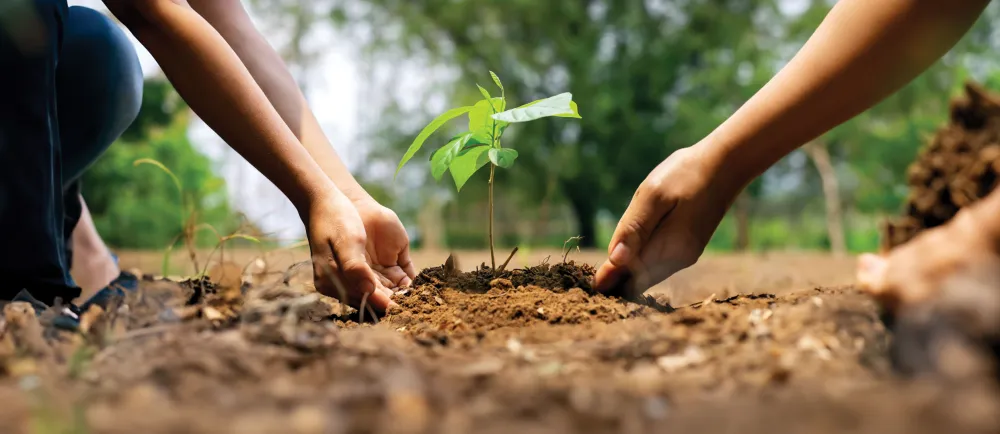Every year, on the last Friday in April, people across the United States come together to celebrate Arbor Day, a day dedicated to planting and caring for trees. This annual celebration encourages individuals, communities, and organizations to plant trees, recognize their importance, and advocate for the protection of our planet’s vital green spaces. But what is Arbor Day, and why is it so important? In this blog, we’ll explore the history of Arbor Day, its significance, and how each of us can make a positive impact on the environment by participating in this special occasion.
The Origins of Arbor Day
Arbor Day was first celebrated in Nebraska in 1872, thanks to the efforts of Julius Sterling Morton, a journalist, and tree enthusiast. Morton, who was appointed as the Nebraska’s first Secretary of Agriculture, was passionate about the need for trees in the state. The vast, treeless plains of Nebraska were in need of shade, windbreaks, and soil stabilization. Morton recognized that trees not only provided beauty but also played a crucial role in the state’s agriculture and ecosystem.
Morton’s vision came to life when he proposed the idea of a day to encourage tree planting and care. On April 10, 1872, the first Arbor Day took place in Nebraska, and over one million trees were planted across the state. Morton’s dedication to trees and environmental stewardship quickly spread across the United States and around the world. In 1885, Arbor Day became a legal holiday in Nebraska, and other states soon followed suit, with many designating their own Arbor Day celebrations on dates that would optimize tree planting based on regional climate conditions.

The Importance of Trees
Trees are essential to the health of our planet. They provide countless benefits to our environment, our communities, and our own well-being. Arbor Day serves as a reminder of the profound impact trees have on the world, encouraging us to think about the long-term benefits of preserving and expanding our tree cover.
1. Environmental Benefits
Trees are nature’s air purifiers. They absorb carbon dioxide and release oxygen, making them vital in combating climate change. In fact, trees absorb carbon from the atmosphere, reducing the amount of greenhouse gases that contribute to global warming. By planting trees, we can help mitigate the effects of climate change and create a healthier planet for future generations.
Trees also play a crucial role in maintaining biodiversity. They provide habitats for countless species of birds, insects, mammals, and other wildlife. A single tree can support a diverse range of organisms, from birds nesting in its branches to insects thriving in its leaves and bark.
2. Soil Conservation
Trees act as natural protectors of the soil. Their roots help prevent soil erosion by binding the soil together and reducing runoff. This is especially important in areas prone to heavy rains, where erosion can lead to the loss of fertile soil and result in flooding. By planting trees, we protect not just the environment but also agricultural resources and water systems.
3. Health and Well-being
Trees also contribute to our mental and physical health. Studies have shown that spending time in green spaces, particularly around trees, can reduce stress and anxiety. Trees offer shade and cool the air, making them an essential component of urban planning. Tree-lined streets and parks create inviting spaces for recreation and relaxation, providing a much-needed escape from the hustle and bustle of city life.
4. Economic Impact
The presence of trees also boosts local economies. Tree-lined streets can increase property values, attract tourists, and promote sustainable industries such as forestry and landscaping. Trees are also an integral part of the timber industry, providing wood for building materials, furniture, and paper products. Sustainable management of tree resources ensures that we can continue to benefit from trees while preserving their ecological roles.

How to Celebrate Arbor Day
Arbor Day is not just for environmentalists or tree experts—it’s a day for everyone to get involved in preserving the planet. Here are some simple ways you can celebrate Arbor Day and contribute to a greener future:
1. Plant a Tree
The most direct way to celebrate Arbor Day is by planting a tree. Whether you have a large backyard or just a small apartment balcony, planting a tree can make a difference. If you don’t have space for a full-grown tree, consider planting a sapling or even a tree in a pot. Just make sure to choose the right tree species for your climate and environment.
2. Volunteer for Tree Planting Events
Many communities and organizations hold Arbor Day events that involve planting trees in public spaces, parks, or schools. Volunteering for these events is a great way to get involved, meet like-minded individuals, and make a positive impact on your local environment. Check out local environmental groups or your city’s website to find Arbor Day events near you.
3. Learn About Trees
Arbor Day is also an opportunity to educate yourself and others about the importance of trees. Learn about the types of trees native to your area, the benefits of tree planting, and how to care for trees throughout their lifespan. Share this knowledge with friends and family to raise awareness about the importance of trees.
4. Advocate for Trees
On Arbor Day, consider writing to your local representatives to advocate for policies that protect trees and forests. Support initiatives that focus on reforestation, urban greening, and sustainable land management. Trees are vital for the future of our planet, and taking a stand to protect them can make a lasting difference.
5. Reduce, Reuse, and Recycle
Trees provide valuable resources, but we must use them responsibly. On Arbor Day, think about ways you can reduce your paper consumption, recycle more efficiently, and support sustainable products. Small changes, such as choosing products made from recycled materials or reducing waste, help conserve trees and other natural resources.
Conclusion: The Legacy of Trees
Arbor Day serves as a reminder that trees are more than just beautiful additions to our landscapes—they are vital to the health of our planet and the well-being of all living creatures. By planting trees, protecting forests, and supporting environmental initiatives, we can help ensure that future generations inherit a world filled with lush, green spaces.
As you celebrate Arbor Day, take a moment to reflect on the ways that trees enrich our lives. Whether through the shade they provide on a hot day or the air they purify, trees are an irreplaceable part of our world. So, this Arbor Day, plant a tree, spread the word, and join the global movement to preserve and protect our planet’s green treasures. Together, we can make a lasting impact for generations to come.
